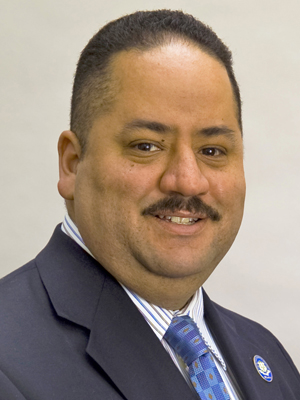Former City Councilman big Mojo Ralph Mojica has a point when he writes what’s the sense of running for office if you have nothing to say. So far OIB’s coverage of the Aug. 14 Democratic primary has largely centered on the personalities in the race for Connecticut’s 23rd Senate District. Maybe we can help the candidates with some questions. What would you ask State Senator Ed Gomes and his two opponents, party-endorsed Ernie Newton and State Rep. Andres Ayala? Ah, the possibilities are endless. You provide some questions and we will submit them to the candidates.

yahooy has an interesting suggestion, albeit in his own snarky sense of humor, how about an essay contest? Your questions need not be generic in nature. If you have a particular question for a candidate, fire away.
For instance a question for Gomes could be: your opponents say you haven’t brought home the bacon: why are they wrong? For Ayala, why would you give up a safe State House seat where you’ve built up seniority for the risk of not winning the State Senate seat? For Newton, an obvious question, why will things be different this time?

Feel free to fire away with questions about reviving neighborhoods, economic development, the state budget and taxes. The questions will be forwarded to the respective camps with plenty of time for responses. Will they answer? Who knows, but we won’t mind posing the questions with blank responses. Class participation is required!


In no particular order for all three:
1. Between ECS and other grants from the State of CT the State provides well over $200 Million of operating funds to the school system currently (and that ignores the significant role the State plays in funding school buildings in our capital budget). How do you and other members of the delegation answer critics in the Hartford legislature or locally who distrust the management of and/or results produced by all of the educational funds? What numbers do you use to justify the investment of taxpayer funds?
2. The Charter Revision Commission has formulated a new way of creating a local Board of Education, which if approved will give the Mayor the ultimate power of appointment replacing the current local process of election of BOE members. The Charter will be on the ballot in November. How do you stand on elected or appointed Board of Education in the future?
3. Why should registered City voters, many of whom are not affected by income or property taxes, come to the polls and vote, in primaries? In general elections?
4. Each citizen has the right to seek their own quality of life in terms of meeting personal needs and wants. That usually means they pursue a job or career that compensates them currently and provides benefits. A legislative position does not pay full-time compensation to meet the full-time needs of most citizens. How do you support your financial needs and wants to avoid any temptations in terms of conflicts of interest or being tempted by money in doing the public’s business?
4. Each of you have observed local governance in the Council as well as State governance for many years. What would be the one change you would strongly urge on the City Council currently to provide better City governance for citizens?
That’s a start. Time will tell.
Would you support Joe Ganim for Mayor if he ran again, and why?
An essay contest may prove too difficult for Ernie … maybe a spelling bee would be more his speed.
*** 1. What does each candidate while on the State Legislature “past or present” consider their best work (not merely majority supported) like an “authored” bill or legislation, or achieved Fed or State funding that has helped the city of Bpt? 2. What does each candidate feel is the most important issue in Bpt that needs fixing? 3. Why do you think voters and State residents in general do not come out to vote in local elections? *** HERE WE GO! ***
Hey, Ernie got the t-shirt right.
From a blog Post on the CT Post:
According to John Stafstrom, the former Bridgeport Democratic Town Committee chairman who helped craft the Steel Point agreement, that 2005 Special Act was actually used successfully by Stamford to develop that city’s Harbor Point.
“(Harbor Point) was modeled and passed after this legislation, but it’s happened first,” said Stafstrom, who was also involved in the Harbor Point project.
Let’s repeat that. A Special Act crafted seven years ago to help Bridgeport finally get Steel Point off the ground served as a model for another Fairfield County city, which then moved forward with its redevelopment while Bridgeport continues to await Steel Point.
Stafstrom following the committee meeting told me Steel Point and Harbor point are really apples and oranges.
“The Stamford project was different. The developer there had already funded $30 million of public improvements he’d gotten reimbursed for, and they already had some buildings under construction. And it’s no secret the Stamford economy is different from Bridgeport’s,” he said.
READ THAT AGAIN. THE DEVELOPER THERE HAD ALREADY FUNDED $30 MILLION. THE CHEAP BASTARDS THAT BRIDGEPORT HAS AS DEVELOPERS HAVE FUNDED $500K. PERIOD. THAT’S IT.
The Stamford project was different. It had bona fide developers behind it; that’s why it was different.
Rumor has Paul Timpanelli taking over B’port Economic Development and Ed Lavernoich taking the reins of the BRBC.
Well, at least Timpanelli stays awake in meetings.
He’s tone deaf to economic development. Same old song and dance … man!
Lavernoich is a nice-enough guy but his name should be Lavernoballs!
That’s crazy. Timpanelli may be friendly with Finch but he knows Wood and Nunn are egotistical idiots. He would never leave the BRBC to work for those fools.
Never underestimate what Timpanelli will do to be part of the in crowd. Can’t help himself.
I agree with Mojo. All three have served for considerable time in the state legislature.
What three specific pieces of legislation were authored or co-authored and became law that directly helped Bridgeport? Be specific.
What is your top legislative priority for the next state legislative session and why?